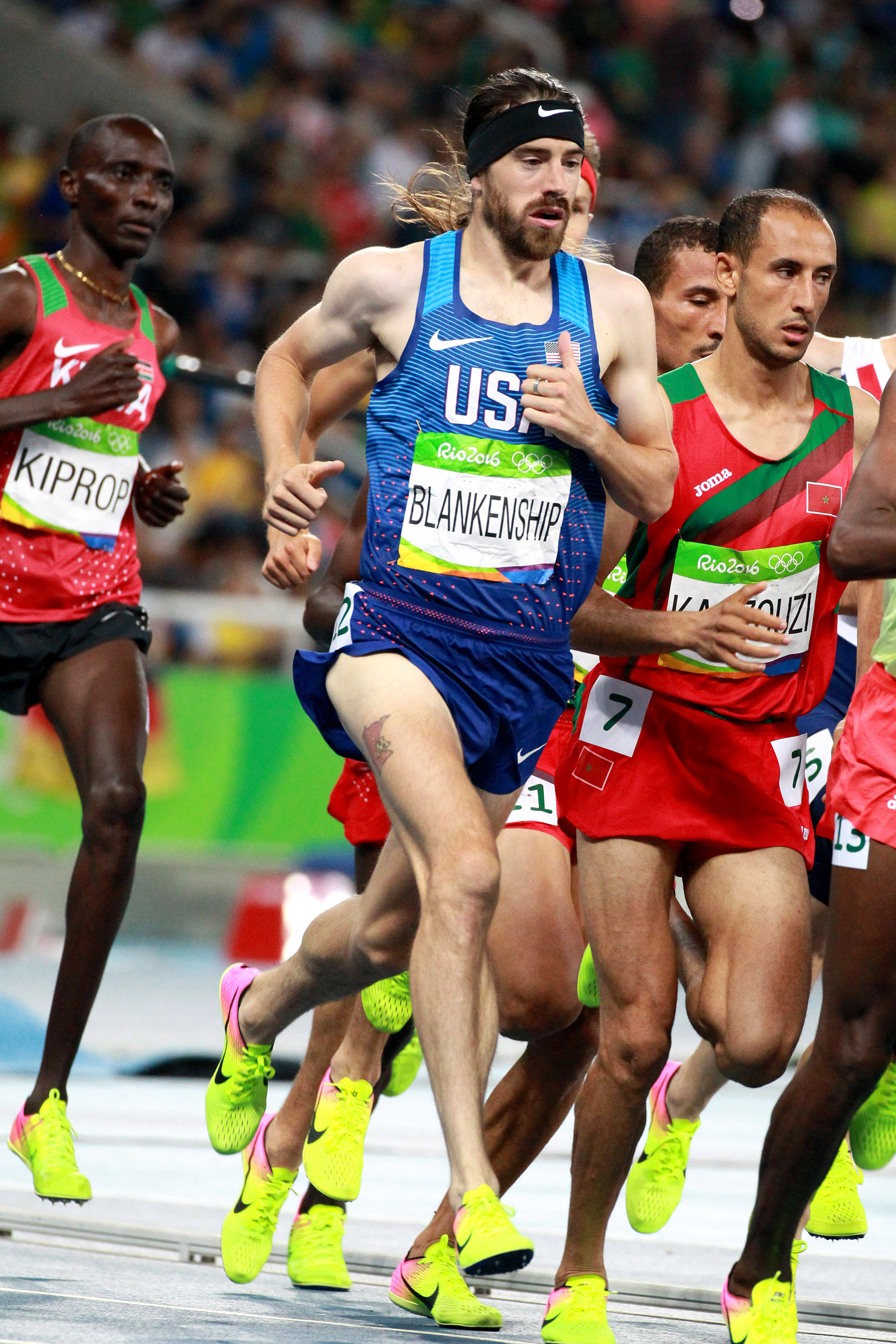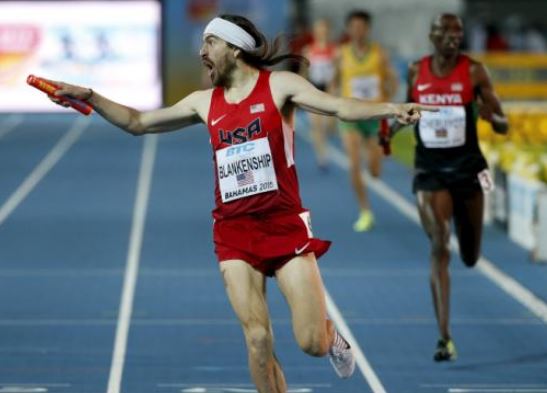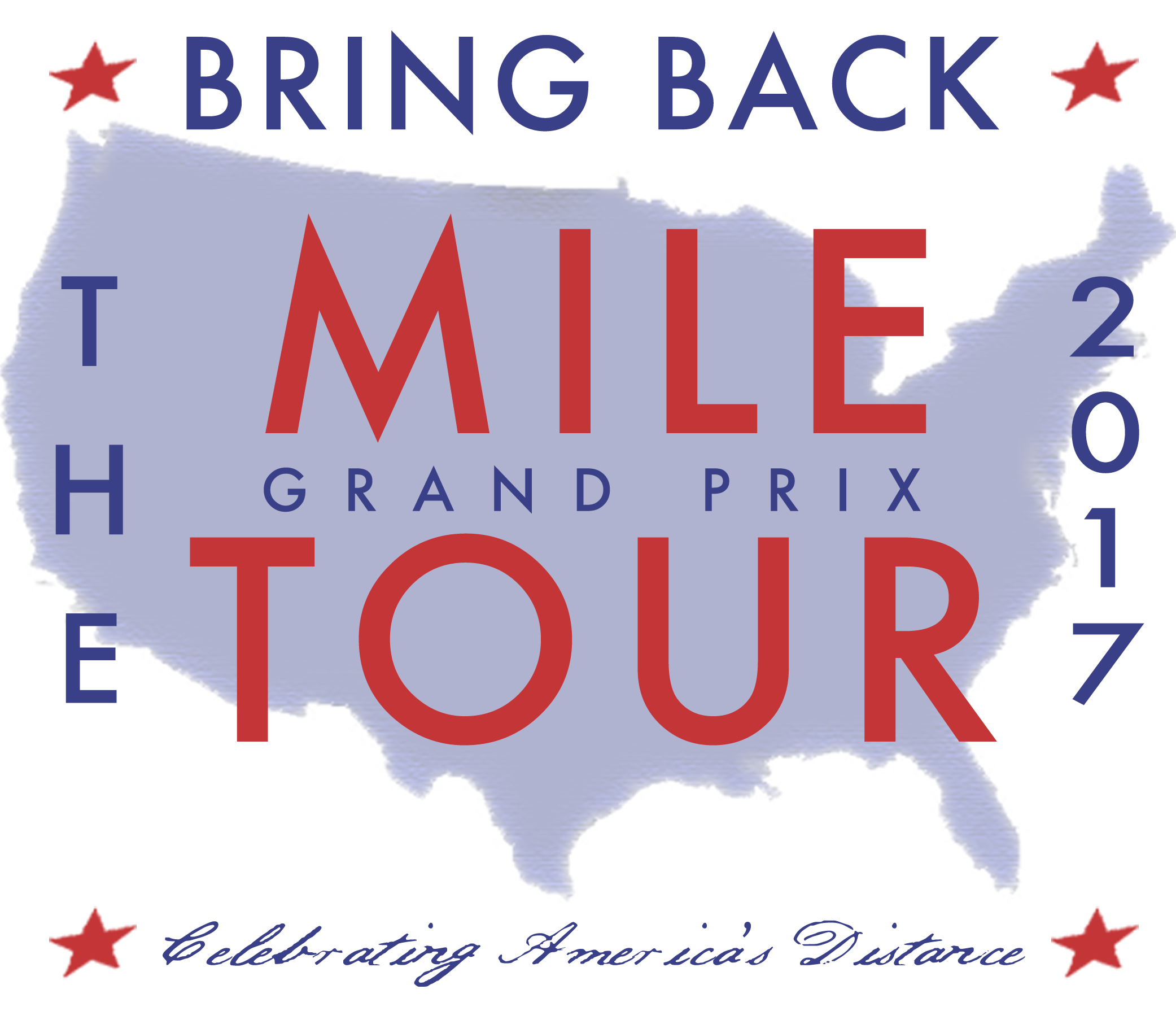Meet the Miler: Ben Blankenship
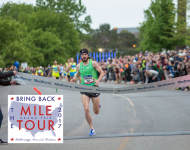
U.S. Olympian returns to his native state to defend his Medtronic TC 1 Mile title against two-time Olympic medalist Nick Willis and a field of top contenders at the second stop of the BBTM Grand Prix #Tour2017.
By Bring Back the Mile
American Mile star and Olympian Ben Blankenship has been on a tear as a professional under the tutelage of NIKE OTC Elite’s coach Mark Rowland. The Stillwater, MN native and University of Minnesota alum was a two-time NCAA All-American and the first Golden Gopher to run under 4 minutes in the Mile. On the track he anchored Team USA that set a Distance Medley Relay World Record at the 2015 World Relays (9:15.50), finished 8th in the 1500m at the 2016 Rio Olympic Games and captured the 2017 USA Indoor Mile title.
On the roads he has been just as dominant and enters the Medtronic TC 1 Mile as the defending champion and event record holder (3:55.8). However, the previous event record holder and 2015 champion, Nick Willis (NZL), is also toeing the line coming off of a 1500m Olympic bronze medal in Rio.
We chatted with Ben after a run earlier this week in his hometown, his successes and getting Chris Pratt out to do a Mile. The Medtronic TC 1 Mile, the second stop on the BBTM GP #Tour2017, is Thursday evening, May 11 in downtown Minneapolis.
>>> Pick-the-Winner at the Medtronic TC 1 Mile and Win Brooks Shoes + BBTM Swag!
Bring Back the Mile: You’re in Stillwater right now, so it’s appropriate that we start our interview there. You won two 1600m state titles. At the time do you remember knowing that there was a difference between the 1600m and the Mile?
Ben Blankenship: Yeah. I think it was just for simplicity's sake that we ran four simple laps. There was a pretty big difference and when high school rankings came out they really took that into consideration, that extra 9 meters. In Oregon they run the 1500 meters. There's basically three standards that everything had to be converted into. I definitely kind of knew there was a difference. I didn't realize once I moved really into the professional world that it would be such a difference between 1500m and the Mile.
What do you think is the major difference between racing the 1500m and the Mile?
It really comes down to the starting line. When you have to get off in the Mile line you're going right into that turn. It’s a more chaotic, really energized start. The 15 you can kind of roll into it in terms of kind of finding a spot.
Last year in Rio critics were saying the 1500m was slow and could Centro have won if it was faster? When you go into these international races tactically, what are you kind of thinking about in relation to your competitors? How does that differ than say running the Bowerman Mile or kind of more time trial type efforts?
At the championship level there's a lot of strategic racing going on in terms of tactics. And I wasn't overly shocked that we ran the time we did at Rio. I thought we would go a little bit earlier than we eventually did. I thought we would go at like maybe six or even seven hundred out, that somebody would get nervous. But if you look through the field it was probably the first time that almost everybody in the final had been racing together for the last four years. There was really nobody new really except for myself and this gentleman named David Bustos from Spain. Nobody really got a rabbit foot and just went off.
I wasn't overly shocked about how that unfolded. Just knowing that you got a lot of guys that really have big confidence in their closing and I think that shined through. Centro is one of the best closers in the game. He kind of proved it that day.
At Stillwater High School you were a two-time Minnesota champion. Were you already thinking in high school about the international stage? What were your goals and aspirations while you were in high school?
I think my goals and aspirations haven't changed much. I've always kind of been a guy who focuses on the present day achievements of what do I need to get done today and what do I need to do to make myself better for the next day. And in terms of racing it's always been about how competitive can I be in this race? I think there's more competitive reasons in terms of, "All right. What can I do to challenge myself in this race?" Versus worrying about guys around you, especially at the high school level.
Even in high school you go to the state championships or some of the bigger meets around the state and I was thinking "How competitive can I be today? What can I do to win this race?" I think that's what I'm still doing today. It's all about how competitive can I be? I always wanna run for the win. And that always means what do I have to do to put myself in the best situation possible and run to my strengths to hopefully win?
I think that definitely shined through at the Olympic Trials press conference in Eugene. I remember one of your replies was, "Hey. This is just the prelims for the next big race which is the Olympic Games." You were very much in the moment and understood what you needed to do to get ready for Rio.
I think with the U.S. Trials being so competitive I always think that, especially first-time Olympians, guys who have made the team first seem to kind of lose their emotional high after making the team. And then really six weeks later they're at the Games and all that luster they had at the championships is gone. Maybe it's because of emotional burnout or because they were primed and ready to go at the Trials and couldn't find that second peak again to get through the rounds.
I was always under the impression that if I didn't make the final I kind of let myself down and let my year kind of go to waste. That was really what we were working on. Once we kind of punched the ticket to Rio we discussed how do we run the best final we can without overlooking the first two rounds knowing that they were gonna be competitive?
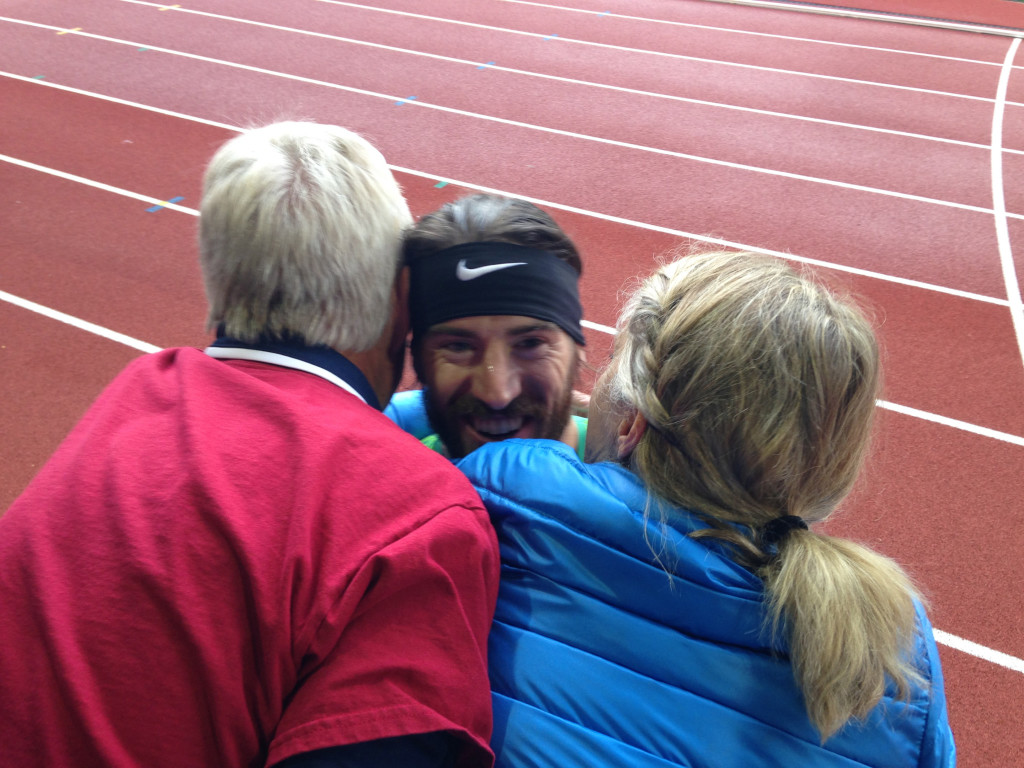
You went from the University of Mississippi and then transferred back to your home state at the University of Minnesota. What drove that decision?
I spent my first year there and I enjoyed it; I just didn't feel like my running was coming along as well as it should have been. I think it was just juvenile impatience and not letting the training really unfold. It was a big change for me in terms of coming from a program with Scott Christensen where I had been with him for basically four years when I left high school and knowing the ins-and-outs of his program. Then I’m going to a completely new program and really new philosophies in terms of how to train for a college program. There was a lot of changes going on and I think I was a little bit naïve about sliding into a national caliber program and the coach will let me run with some of the top guys. I overlooked the real changes that are going on in terms of just changing programs, changing lifestyles completely, and really changing how you race on a day-to-day basis.
You found your stride as a Golden Gopher, winning the 2010 Big Ten Mile title and becoming the program’s first sub-4 minute Miler.
It was really great, although one of my big problems was I ended up redshirting and running really fast my senior year and those times didn’t count as terms of school records because I wasn't wearing a Gopher jersey.
Now you're thinking about a professional career and in 2013 you won the Michigan Mile, edged out Will Leer at Falmouth and then set the state of Minnesota Mile best in Duluth, clocking a swift 3:52.7 (photo below). What were the steps that you took to put yourself into a position to have the season that you did in 2015 and 2016?
I think one of the big things I always go back to is just being competitive. And I think my coach Mark Rowland really did a great job in terms of being realistic each year. I didn't join him until 2013 and there was no really getting around the fact that "Hey, you're not ready to run in the major championships. We gotta get back to really the day-to-day work that it takes to start to make a U.S. championship and then a final. And then how do you execute in a final to potentially make the team?"
So it was a lot of basics that first year and a half of just getting in really good training, getting stronger, and just remembering to be as competitive as you can in each race and hopefully those races will get better and better and kind of push you forward. There was no real illusion that I was gonna come out in 2013 and make the team.
In 2013 I needed to get the feeling of racing again on a national level and those oad Miles really worked out well in terms of kind of putting my name back out there doing some stuff that was a little less stressful than flying to Europe, trying to run fast times. It was nice to go through the motions of kind of a full season off the track, on the roads, and making a little bit of money on the side. It worked out really well.
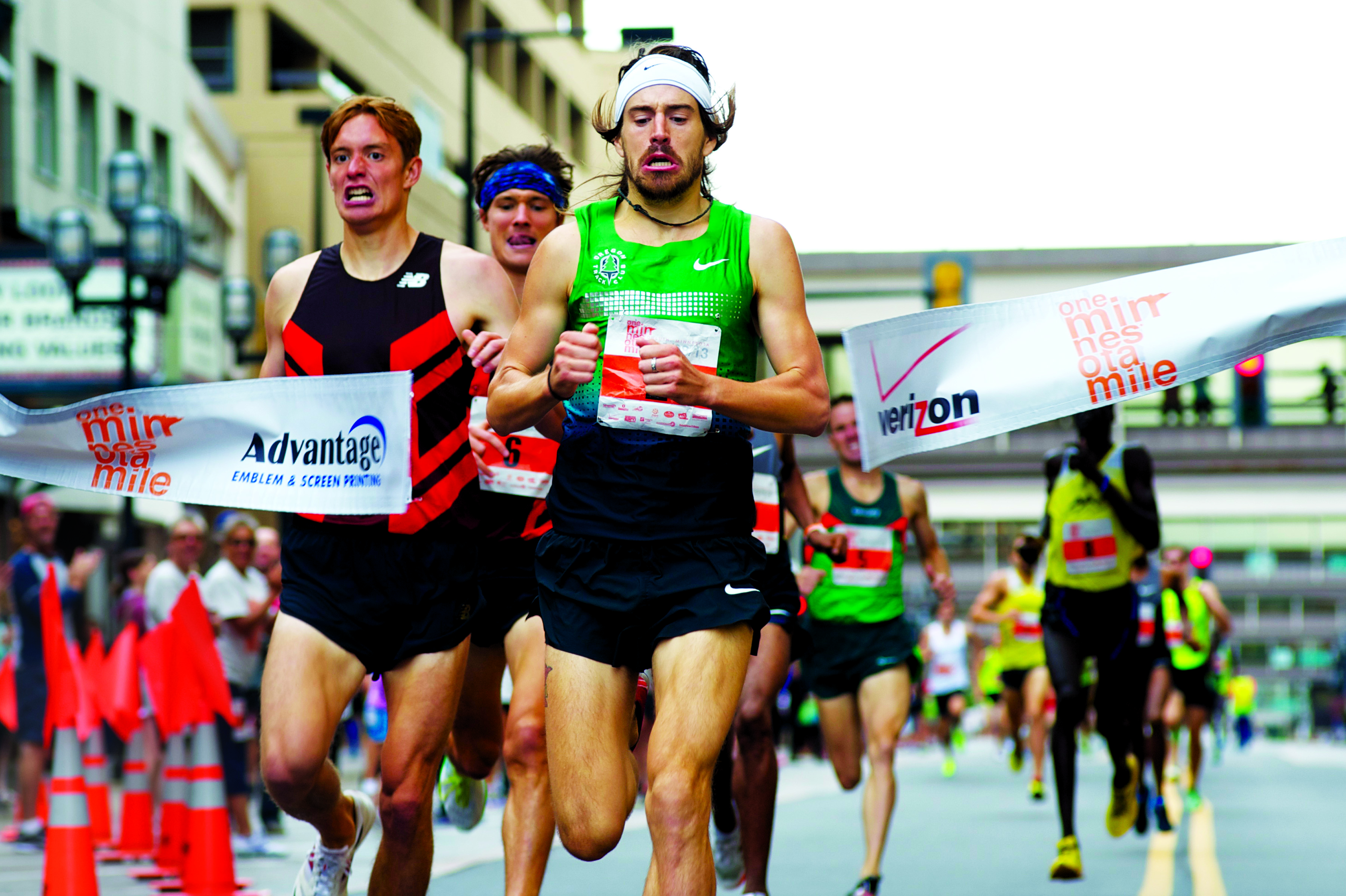
Do you think your experience from freshman year of college and that kind of youthful anxiousness that you were describing helped you when you were coming out of college to take a longer road?
I think so. I think just learning in terms of some struggles that I've had in my career. Just how do you build off of that? And also at that point I was dating a gal named Jessica Gabriel and we had moved to DC for a little bit together. I kind of put my running on the back burner and I was just trying to get out the door, run an hour everyday and trying to get back into shape.
I remember one thing that really stuck with me and still I would say would be the turning point in my career. Basically not racing for a full year kind of put me out of it mentally and physically. I had a good college career, I did some good things, but I probably am not close to being a world top ten, or a world twenty five. So why don't we just see what else life has to bring?
I was working out with the American University guys. Sean Graham was also an alumni of Stillwater High School and is the head coach at Kentucky now. At the time he was the assistant coach at American and they used to work out early because of how hot it would get in DC. I remember doing some intervals with him and that was the turning point where I said, "Okay. Why don't we actually give this a good run?" I went through the motions of getting ready for a cross country season with those guys I was taking it a bit more serious and I decided to reach back out to Mark Rowland, gaining the opportunity to move out to Eugene and start training full time.
Let's jump ahead to 2015 and you're part of that distance medley world record team. What's that like to be at the World Relays? Something that's so different than just being an individual in a race but you're part of this U.S. team trying to accomplish certain goals.
It was one of the highlights of my career; it was a great experience all around. They put out the word a few weeks prior to the World Relays asking if I wanted to be a part of the DMR. Kyle Merber was super excited that we could break at least the national record and I really had no idea what it was to be honest. Even in the race I still didn’t know it.
Everybody ran really well and it wasn't until I got the baton that I was said to myself, "Okay. We're in position to win this. I can't let everybody down now." That was probably one of the most exciting races in terms of how close it was and just the dramatic unfolding of that last Mile.
Now on paper you have a little bit of a rivalry brewing with Nick Willis. You’ve had a couple of runner-up finishes to him and then you took his Medtronic TC 1 Mile event record last year. You’re racing him on Thursday evening. Any friendly banter going into Thursday night's race?
I haven't spoken to him yet, but I am interested to see what he has to say and I'll be interested to see his race tactics. I know that last year when I did break his record he thought the record was a little bit soft and was easy to get. We'll see if he's up for the challenge of trying to go after it right from the gun.
I think that'll be really interesting to see how it unfolds and I'm excited. He's a few years older, he's got a couple world medals under his belt now. So we'll see what he does.
Is youthfulness more valuable than having medals and experience? Who do you give the nod to? Blankenship or Willis?
Oh, I always give it to myself. Age, I don't think matters; he's still youthful. I think it's more about the tactics. He gave me a little bit of shit about breaking his record and I'll be interested to see if he goes after it. Especially without all his cronies to help him out.
Have you had a chance to watch Guardians of the Galaxy 2 already?
I haven't with travelling overseas recently. I'm waiting to watch it with my girlfriend. I'm quite excited about it.
Do you consider yourself a pretty big comic, SyFy guy?
No. I can't say I am at all. I've never watched another, but this one seems to be right up my alley. I might have a crush on Chris Pratt.
He's a good looking guy and is personable. Maybe we can figure out a way to get Chris to do a Mile one of these days; a celebrity Mile at one of these upcoming events. He'd probably be up for it. We'll get Will Ferrell, Chris Pratt, Kevin Hart and a couple of others.
Yeah, that would be great.
Good luck on Thursday night and have fun out there.
Thank you for your time.
